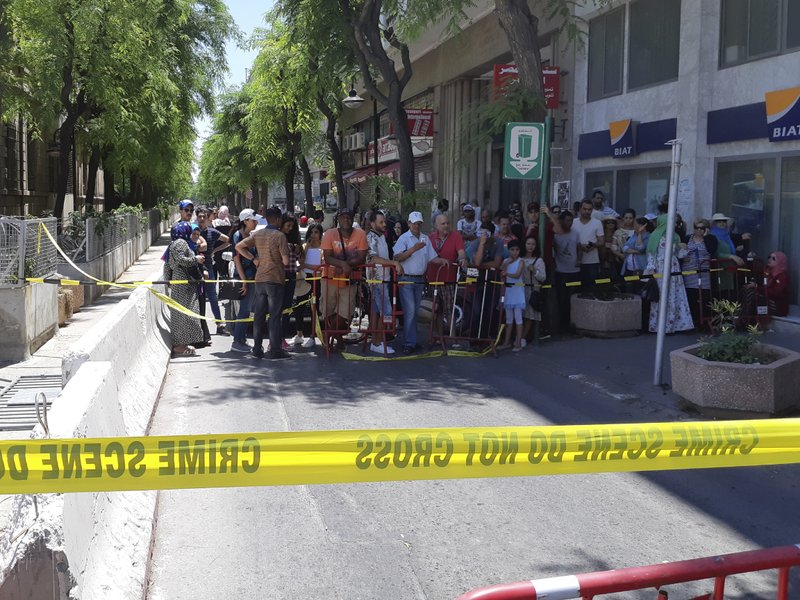
TUNIS (Reuters) – Two suicide bombers blew themselves up in separate attacks on police in the Tunisian capital on Thursday, killing one police officer and wounding several other people, the government said.
It was not immediately known who was behind the attacks, which come months before an election and at the peak of a tourist season in which Tunisia is hoping for a record number of visitors.
Separately on Thursday, 92-year-old President Beji Caid Essebsi was taken to a military hospital after suffering a “severe health crisis”, the presidency said.
The first suicide bomber targeted a police patrol in Charles de Gaulle Street in central Tunis. One police officer was killed and at least one other as well as three civilians were wounded, the Interior Ministry said.
Shortly afterwards, a second suicide bomber blew himself up near a police station in al-Gorjani district. Four people were wounded, the Interior Ministry said.
Heavily armed police cordoned off the locations of the attacks, one of which was about 200 meters away from the French embassy.
Reuters witnesses saw people rushing away from the scene, while the body of one suicide bomber lay on the ground. Ambulance cars arrived.
“I was shopping with my daughter and we heard a big explosion. We saw the body of the terrorist lying on the ground near a police vehicle after he blew himself up,” said a man who give his name only as Mohamed.
Interior Ministry spokesman Sofian Zaak said the attackers had not yet been identified, and he called on the public to show strength and not panic.
People appeared to heed that message: Within minutes of the attacks, they could be seen sitting as usual in cafes up and down Habib Bourghiba, the main street.
In a show of more open defiance, some 300 people gathered on the same street and held up pamphlets saying: “We do not fear terror, Tunisia is no place for terrorism.” They chanted the national anthem and slogans praising the security forces.
Tunisia has been battling militant groups operating in remote areas near the border with Algeria since an uprising overthrew autocratic leader Zine Abidine Ben Ali in 2011. High unemployment has also stoked unrest in recent years.
Last October, a woman blew herself up in the center of the capital Tunis, wounding 15 people including 10 police officers in an explosion that broke a long period of calm after dozens had died in militant attacks in 2015.
Security has improved since authorities imposed a state of emergency in November 2015 after those attacks – one at a museum in Tunis and another on a beach in Sousse. A third attack targeted presidential guards in the capital. Islamic State claimed responsibility.
The attacks scared off holidaymakers and investors, worsening the country’s economic problems.
The government has imposed tough austerity measures to fulfil the demands of donors, who have helped keep the country afloat. But political infighting has also slowed decision-making and much-needed economic reforms.
Reporting by Tarek Amara; Editing by Angus MacSwan, Ulf Laessing and Hugh Lawson
Photo: People are prevented to enter a security area after an explosion in Tunis, Thursday June 27, 2019. The Tunisian Interior ministry said one police officer has died in the suicide bombing targeting a police patrol in a busy commercial street in central Tunis. (AP Photo/Riadh Dridi)




